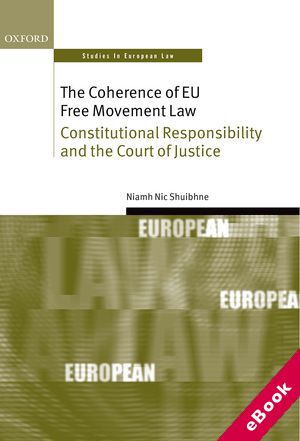
The device(s) you use to access the eBook content must be authorized with an Adobe ID before you download the product otherwise it will fail to register correctly.
For further information see https://www.wildy.com/ebook-formats
Once the order is confirmed an automated e-mail will be sent to you to allow you to download the eBook.
All eBooks are supplied firm sale and cannot be returned. If you believe there is a fault with your eBook then contact us on ebooks@wildy.com and we will help in resolving the issue. This does not affect your statutory rights.
At the heart of the European Union is the establishment of a European market grounded in the free movement of people, goods, services, and capital. The implementation of the free market has preoccupied European lawyers since the inception of the Union's predecessors. Throughout the Union's development, as obstacles to free movement have been challenged in the courts, the European Court of Justice has had to expand on the internal market provisions in the founding Treaties to create a body of law determining the scope and meaning of the EU protection of free movement. In doing so, the Court has often taken differing approaches across the different freedoms, leaving a body of law apparently lacking a coherent set of foundational principles.